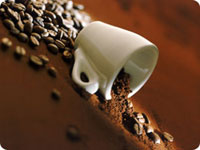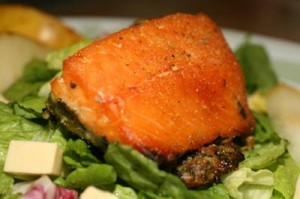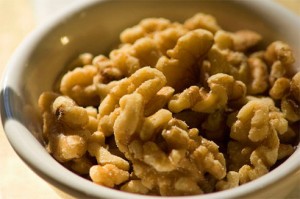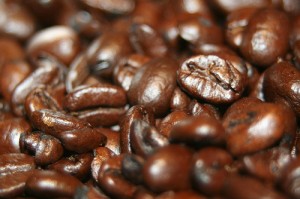Some of us have probably visited a pharmacy or drug store to look for vitamins or supplements that could help boost brain activity, improve short- and long-term memory, or increase focus and concentration. But did you know that you could have all these by simply adding the right foods and beverages to your diet?
Research is showing that certain food substances have different positive effects on our brain. Here are few examples of those “super foods”:
Blueberries were found to help protect the brain from oxidative stress and can
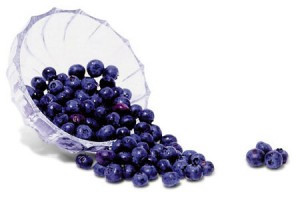
Wild blueberries - A nutritious treat, a good source of Vitamin C and dietary fiber. Photo from: Wild Blueberry Producers Association of Nova Scotia
slow down the onset of age-related conditions such as Alzheimer’s disease or Dementia. Some studies done on rats have also shown that their learning capacities and motor skills have improved significantly after implementing a diet rich in blueberries. These aging rats were later found to have brain functioning almost at par with the younger ones. Blueberries are also capable of improving memory as shown in other studies. It is recommended by Dr. Ann Kulze, author of Dr. Ann’s 10-Step Diet:, to have at least a cup of blueberries every day to aid in long-term memory.
Caffeine stimulates the nervous system and provides a person more energy, alertness as well as focus and better concentrate. Another benefit of caffeine is
maintaining mental activity by speeding up metabolism. One study done by British researchers said that just one cup of coffee helps boost attention as well as problem-solving skills. However, these effects are only short term and if overused, can make you jittery and uncomfortable.Therefore, according to the U.S. Food and Drug Administration, you should limit caffeine intake to about 300mg per day. Some alternatives to coffee are herbal tea and protein shakes.
Wild Salmon. According to Dr. Steven Pratt, author of Superfoods Rx: Fourteen Foods that Will Change Your Life, wild salmons are known to be rich in omega-3 essential fatty acids, which is important for brain function. The omega-3 fatty acids found in fatty fishes are a primary building block of brain tissue and some benefits involve prevention of body inflammatory processes, better overall cell functioning like transferring information between the body’s cells. It is also
associated with improved mood and of course, better brain function. 4-ounce serving, about two times a week, is recommended.
Nuts and Seedsare good source of vitamin E, which slows down the decline in your cognitive system as you get older. Some examples include walnuts (help as antidepressant and mood-boosting), cashews (high in magnesium which can open up blood vessels in your brain, allowing more oxygen-rich blood to reach the
brain), and flax seeds. Flax seeds is found to be a good source of alphalinoleic acid, that improves the functioning of the cerebral cortex (area of the brain that deals with sensory information processing) and therefore provides for sharper senses. Try snacking an ounce of these nuts daily, whether roasted or raw.
Now, all these are only a few of many other examples of good brain foods. As a student, I find it useful to know these kinds of information that help boost my concentration and aid my memory to aid my studying habits. In addition, it is also easy to prepare and is therefore convenient for other students to simply snack on while studying.
References:
http://helpingpsychology.com/caffeine-your-brain-on-stimulants
http://www.naturalnews.com/019885.html
http://health.yahoo.net/experts/eatthis/best-and-worst-brain-foods/
http://www.webmd.com/diet/guide/eat-smart-healthier-brain?page=2

